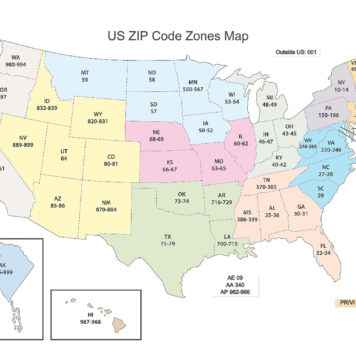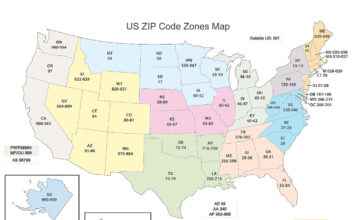Breaking News in New Jersey
Stay Informed with the Latest New Jersey News
New Jersey is a state bustling with activity, culture, and dynamic communities. From the buzzing streets of Newark to the serene shores of Cape May, there’s always something happening. For those eager to stay updated, specific topics dominate searches when it comes to “New Jersey news.” Here’s a guide to the most popular categories and why they matter to residents and visitors alike.
1. Breaking News in New Jersey
“Breaking news” is one of the most searched terms, reflecting readers’ desire to stay informed about urgent developments as they unfold. From unexpected weather events to political updates, breaking news ensures New Jerseyans are always in the loop about what’s happening in their state. Timeliness and accuracy are critical for covering these updates effectively.
2. Local News in New Jersey
Community-driven stories are the backbone of news consumption. “Local news in New Jersey” is a top search as residents want to know about their towns and cities. Whether it’s municipal elections in Trenton, school board decisions in Jersey City, or small businesses making waves in Hoboken, local stories foster a strong connection among New Jersey communities.
3. New Jersey Traffic and Transportation Updates
With major highways like the Garden State Parkway and New Jersey Turnpike running through the state, “traffic updates” is a hot search. Commuters rely on real-time information about road conditions, construction delays, and transit schedules to navigate their daily lives. Additionally, news about NJ Transit, PATH trains, and ferry services is essential for those traveling in and out of New York City.
4. Weather in New Jersey
The unpredictable weather of the Garden State makes “New Jersey weather” a commonly searched term. Whether it’s tracking Nor’easters, heatwaves, or beach conditions during summer, accurate forecasts help residents plan their days. Coastal flooding alerts and winter storm advisories are especially crucial for those living in vulnerable areas.
5. Crime News in New Jersey
Safety is a top concern for everyone, making “crime news in New Jersey” a widely searched category. Updates on local investigations, public safety alerts, and community policing efforts draw significant attention. Covering crime stories responsibly and accurately ensures communities stay informed while respecting those involved.
6. New Jersey Politics and Government News
As a politically active state, “New Jersey politics” garners a lot of interest. From gubernatorial elections to state legislature updates, residents are keen to understand how decisions in Trenton impact their lives. Local policy changes, tax reforms, and infrastructure projects are also high on the political radar.
7. Sports News in New Jersey
New Jerseyans are passionate about their teams. “Sports news in New Jersey” often revolves around the New Jersey Devils in the NHL, Rutgers Scarlet Knights in college football, and minor league teams scattered across the state. Whether it’s game results, player transfers, or upcoming fixtures, sports enthusiasts eagerly seek updates.
8. Business and Economy News in New Jersey
The state’s proximity to major metropolitan areas like New York and Philadelphia makes it a hub for business activity. Searches for “New Jersey economy” and “business news” focus on local startups, corporate expansions, and job market trends. Real estate development and housing market updates are also hot topics, especially in growing cities like Hoboken and Morristown.
9. Entertainment and Events in New Jersey
From concerts at the Prudential Center to seasonal events in Atlantic City, “New Jersey events” is a frequently searched term. Residents and tourists alike want to stay informed about festivals, theater productions, and nightlife options. Coverage of cultural events highlights the state’s diversity and vibrancy.
10. Education News in New Jersey
Education is always a priority, with “New Jersey schools” being a popular search. Updates on curriculum changes, standardized test results, and local school board decisions resonate with parents and students. Colleges like Rutgers University and Princeton also draw significant attention for their academic and extracurricular developments.
11. Health and Wellness News in New Jersey
The pandemic has heightened interest in health-related topics. Searches like “New Jersey health news” focus on hospital updates, public health advisories, and wellness initiatives. From vaccine rollouts to mental health resources, these stories provide essential information to the public.
12. New Jersey Shore and Tourism News
The Jersey Shore remains one of the state’s biggest attractions. “New Jersey Shore news” sees a surge during the summer months, with visitors looking for beach conditions, events, and dining recommendations. Towns like Cape May, Wildwood, and Asbury Park frequently make headlines for their unique charm and activities.
Your Go-To Source for New Jersey News
Staying informed is more important than ever in today’s fast-paced world. A reliable news platform that covers everything from breaking stories to niche topics ensures that New Jerseyans have access to the information they need. By focusing on the trending topics outlined above, news platforms can deliver the content that matters most to their audience.

































































































































![How To Fix [pii_email_37f47c404649338129d6] Error In Microsoft Outlook? How to Fix Outlook Mail Error Codess](https://dailynewsen.com/wp-content/uploads/2021/08/How-to-Fix-Outlook-Mail-Error-Codess-356x220.jpg)



